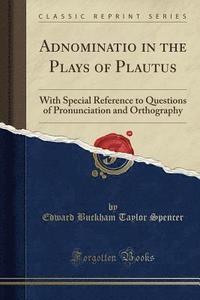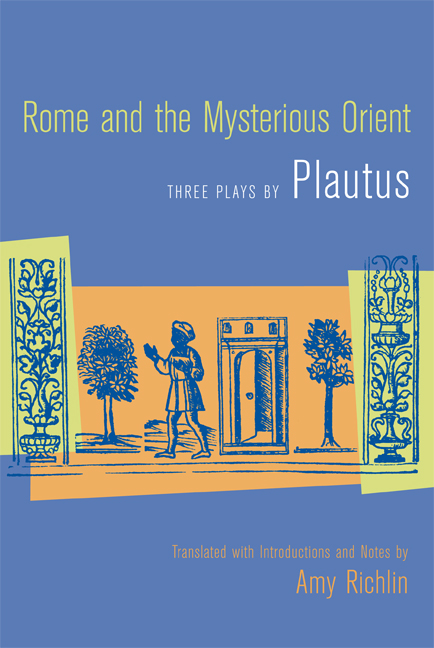Plautus Plays
May 19, 2010 - I wrote my senior thesis on two plays by the Roman playwright Plautus, called Mostellaria (“Haunted House”) and Miles Gloriosus (something.
| Amphitryon | |
|---|---|
| Written by | Plautus |
| Characters | Mercury Jupiter Sosia (Amphitryon’s slave) Amphitryon Alcmena (Amphitryon’s wife) Blepharo (ship’s pilot) Bromia (Alcmena’s maid) |
| Setting | Thebes, before the house of Amphitryon |
Amphitryon or Amphitruo is a Latinplay for the early Roman theatre by playwrightTitus Maccius Plautus. It is Plautus’ only play on a mythological subject; he refers to it as a tragicomoedia (tragic comedy) in the prologue. The play is mostly extant, but includes several large missing sections in its latter portion. The plot of the play involves Amphitryon’s jealous and confused reaction to Alcmena’s seduction by Jupiter, and ends with the birth of Hercules.
Plot[edit]
AmphitryonAll beyblade metal fury characters. begins with a prologue given by the god Mercury, in which he gives some background information to the audience. Amphitryon and his slave Sosia have been away at war and are returning to Thebes. Meanwhile, the god Jupiter is sleeping with Amphitryon’s wife Alcmena. Jupiter is in the guise of Amphitryon so that Alcmena is unaware that he is not her husband.
Mercury's job is to buy his father Jupiter some time by deceiving those who would interfere. He changes his appearance to look like the slave Sosia, and when the real Sosia arrives, he beats him up and sends him away from the house. Thoroughly confused by having been beat up by himself, Sosia returns to the ship to relay what happened to his master Amphitryon.
The following morning, Amphitryon sets off for the house, annoyed by his slave's foolish sounding story. Jupiter leaves only moments before Amphitryon arrives, and when Alcmena sees her real husband, she is confused as to why he has returned. Amphitryon doesn't appreciate this strange welcome after being gone for so many months, and confusion turns to anger and jealousy after learning that she has slept with a man who is not himself.
After a long argument, Alcmena is ready to leave her untrusting husband but is stopped by Jupiter. He soon begins to set things right, and in a miraculous event, Alcmena gives birth to twin boys. One is the son of Amphitryon, the other is Hercules, the son of Jupiter. To quell Amphitryon’s anger, he explains to him what he did, and Amphitryon is then honored to have shared his wife with a god.
Adaptations[edit]
In 1621 the German poet laureate Joannes Burmeister published a Neo-Latin adaptation, titled Mater-Virgo (The Virgin Mother), about the Nativity of Jesus. In it Amphitryon became Joseph, Alcmena became the Virgin Mary, and Sosia became the angel Gabriel.[1] The last known copy of the book went missing from the Berlin library in World War II and exists now only in fragments.
Translations[edit]
- Henry Thomas Riley, 1912[2]
- Paul Nixon, 1916 [3]
- Sir Robert Allison, 1942 [4]
- E. F. Watling, 1964 [5]
- Paul Roche, 1968 [6]
- Constance Carrier 1970[7]
- Lionel Casson 1971 [8]
- David Christenson 2008 Review in Bryn Mawr Classical Review
- Prof. Jerry Respeto, 2009
- Wolfang de Melo, 2011 [9]
References[edit]
Plautus Quotes
- ^Fontaine, Michael. 2015. Joannes Burmeister: Aulularia and Other Inversions of Plautus. Leuven: Leuven University Press.
- ^Plautus (1912). The Comedies of Plautus. Translated by Henry Thomas Riley. G. Bell and Sons.
- ^Plautus; Translated by Paul Nixon (1916). Plautus, I, Amphitryon. The Comedy of Asses. The Pot of Gold. The Two Bacchises. The Captives. Loeb Classical Library. ISBN978-0-674-99067-8.
- ^Sir Robert Allison (1942). The Complete Roman Drama. Random House.
- ^Plautus; Translated by E. F. Watling (1964). Plautus: The Rope and Other Plays. Penguin.
- ^Plautus; Translated by Paul Roche (1968). Three Plays by Plautus. Mentor.
- ^Constance Carrier (1970). Palmer Bovie (ed.). Five Roman Comedies. E.P. Dutton.
- ^Plautus; Translated by Lionel Casson (1971). Plautus: Amphitryon and Two Other Plays. W.W. Norton.
- ^Plautus; Translated by Wolfgang de Melo (2011). Plautus, Vol. I: Amphitryon; The Comedy of Asses; The Pot of Gold; The Two Bacchises; The Captives. Loeb Classical Library. ISBN0674996534.
Further reading[edit]
- Bettini, Maurizio. 2000. 'Sosia and his Substitute: Thinking the Double at Rome.' In The Ears of Hermes: Communication, Images, and Identity in the Classical World. Translated by W. M. Short, 171–199. Columbus: Ohio State Univ. Press.
- Bond, R. P. 1999. 'Plautus’ Amphitryo as Tragi-comedy.' Greece & Rome 46:203–220.
- Braund, S. 2005. 'Marriage, Adultery, and Divorce in Roman Comic Drama.' In Satiric Advice on Women and Marriage. Edited by W. S. Smith, 39–70. Ann Arbor: Univ. of Michigan Press.
- Hardin, R. F. 2012. 'England’s Amphitruo before Dryden: The Varied Pleasures of Plautus’s Template.' Studies in Philology 109:45–62.
- Moore, T. J. 1998. 'Gods and Mortals: Amphitruo.' In The Theater of Plautus: Playing to the Audience. By T. J. Moore, 108–125. Austin: Univ. of Texas Press.
- Nesselrath, H. G. 1995. 'Myth, Parody, and Comic Plots: The Birth of Gods and Middle Comedy.' In Beyond Aristophanes: Transition and Diversity in Greek Comedy. Edited by G. W. Dobrov, 1–27. Atlanta: Scholars Press.
- O’Neill, P. 2003. 'Triumph Songs, Reversal and Plautus’ Amphitruo.' Ramus 32:1–38.
- Passage, C. E., and J. H. Mantinband. 1974. Amphitryon: Three Plays in New Verse Translations: Together with a Comprehensive Account of the Evolution of the Legend and its Subsequent History on the Stage. University of North Carolina Studies in Comparative Literature 57. Chapel Hill: Univ. of North Carolina Press.
- Phillips, J. E. 1984. 'Alcumena in the Amphitruo of Plautus: A Pregnant Lady Joke.' Classical Journal 80:121–126.
- Slater, N. W. 1990. 'Amphitruo, Bacchae and Metatheatre.' Lexis 5–6:101–125.

External links[edit]
- Latin Wikisource has original text related to this article: Amphitruo
- Amphitryon – Latin (full text) at the Perseus Project.
- Amphitryon – translation English (full text) at the Perseus Project. Translation by Henry Thomas Riley.

Plautus Asinaria
About The Rope and Other Plays
Brilliantly adapting Greek New Comedy for Roman audiences, the sublime comedies of Plautus (c. 254-184 BC) are the earliest surviving complete works of Latin literature. The four plays collected here reveal a playwright in his prime, exploring classic themes and developing standard characters that were to influence the comedies of Shakespeare, Molière and many others. In The Ghost, a dissolute son who has squandered his father’s money is thrown into disarray when he returns from abroad, a theme that is explored further in the comedy of errors A Three-Dollar Day. In The Rope—regarded by many as the best of Plautus’ plays—the shipwreck of a pimp and his slaves leads to the touching reunion of a father and his daughter, while Amphitryo, Plautus’s only excursion into divine mythology, offers a cheerful account of how Jupiter became father to Hercules.
For more than seventy years, Penguin has been the leading publisher of classic literature in the English-speaking world. With more than 1,700 titles, Penguin Classics represents a global bookshelf of the best works throughout history and across genres and disciplines. Readers trust the series to provide authoritative texts enhanced by introductions and notes by distinguished scholars and contemporary authors, as well as up-to-date translations by award-winning translators.